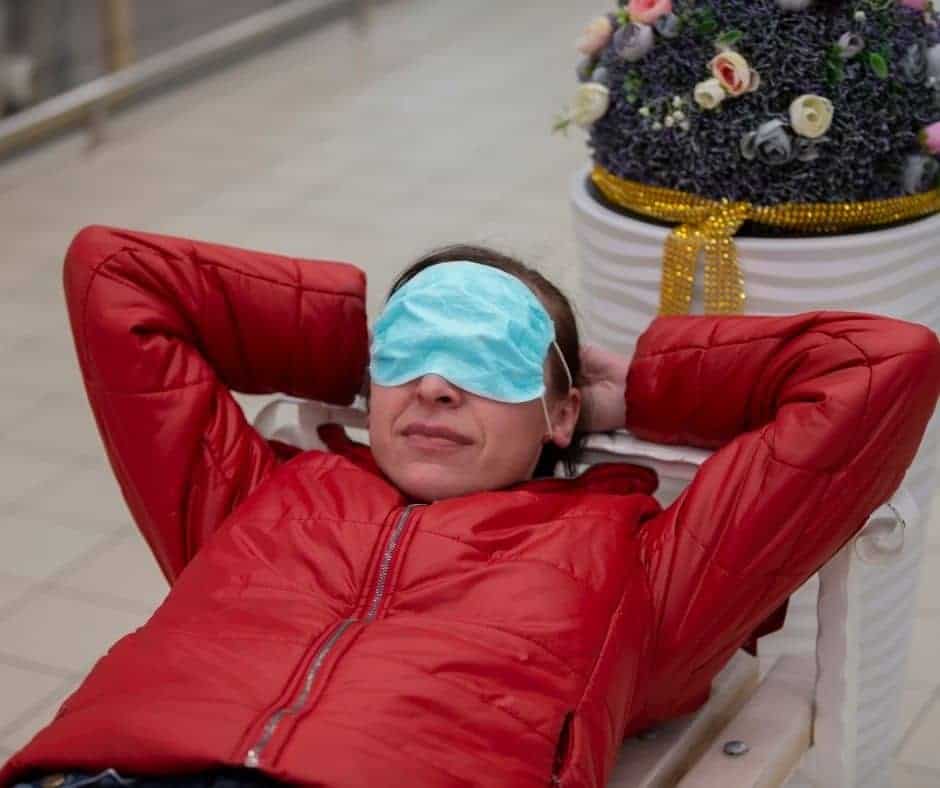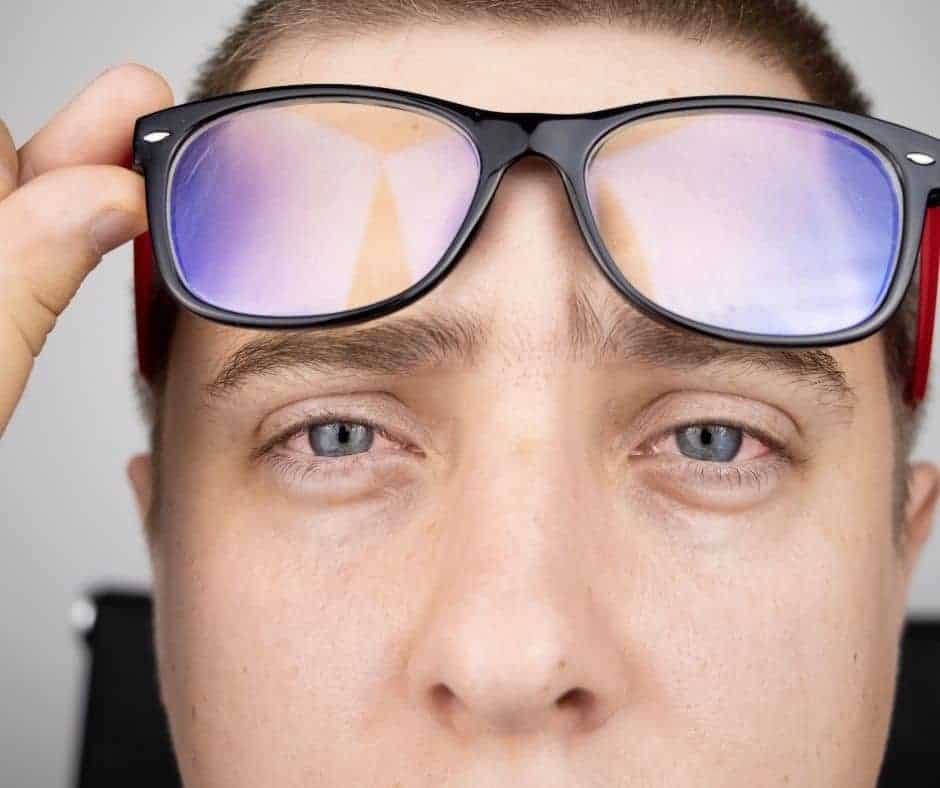Blue light-blocking glasses are definitely having a moment, thanks to the COVID-induced screen marathon we are all slogging through. Is blue light really harmful to your eyes or your health? Do we need to protect our children’s eyes? Or is the bankrupt fashion industry betting on blue light glasses as the biggest COVID fashion accessory? After fashionable masks in every imaginable pattern of course. Let’s separate the marketing hype from the science and find out once and for all whether blue light glasses should become an essential part of our daily uniform.

What the Marketers Say
Advertisements from makers of blue light glasses make us feel like our digital screens are toxic or radioactive devices requiring full PPE each time we sit in front of them. The reality is that blue light is not necessarily bad for us. Most of the potential health benefits of wearing blue light glasses have not been proven. Some of the claims made in support of blue light blocking glasses are that they:
- Help improve sleep quality and reduce insomnia
- Reduce eye fatigue and eye strain
- Protect the eyes against light-induced damage to the retina (the light-sensitive part of your eye)
What Science Claims
It is true that shorter wavelengths of light in the blue spectrum can impact our health, but not necessarily in a bad way.
A hormone called melatonin helps regulate our sleep-wake cycles. These 24-hours of sleeping and activity are called circadian rhythms. The pineal gland, a small pea-sized gland sandwiched deep between the two hemispheres of our brains produces melatonin. Blue light, mostly from the sun, but also to a smaller extent, from digital screens, can send a signal to our pineal gland to stop producing as much melatonin. Melatonin levels naturally decrease in darkness so that we feel more sleeping and increase in bright light. We know that exposure to blue light helps us feel more awake, alert, and sharp.
Science also tells us that blue light has more energy than other wavelengths of light. At high doses, this high-energy light has the potential to cause damage to cells in our bodies.
Blue Light From Our Screens Is Not Hazardous to Your Eyes
Numerous studies have tried to prove that blocking blue light might help prevent age-related eye conditions such as blindness or a condition called macular degeneration. The evidence is just not there, and several companies have actually been fined for making false claims about the eye health benefits of blue light lenses and glasses.
- A meta-analysis of 51 studies, performed in 17 different countries, examining a cumulative total of 5,000 eyes did not find good enough evidence to conclude that blocking blue light could prevent aging of the eye.
- Our devices do not give off enough blue light to cause damage, even if we are glued to them for hours at a time.
- There is no evidence that exposure to blue light from screen time harms children’s eyes or their developing visual systems.

Blocking Blue Light Does Not Reduce Eye Fatigue
The symptoms of eye fatigue we are all suffering from these COVID days are: headache, dry eyes, blurry vision, and teary or watery eyes.
- Scientists examining existing research could not find any major differences in eye strain or eye fatigue among people wearing blue light glasses and those without.
- The American Academy of Opthamology states that digital eye strain is not caused by blue light. Eye strain is caused by the fact that we blink less often when staring at a screen.
As one ophthalmological researcher put it: “Blue light has become the gluten of the sleep world. Thought it might be a trigger for some health issues, its impact has been blown way out of proportion.
Blue Light From Our Screens Is Not A Major Sleep Disruptor
- Too much blue light can cause our body to make less melatonin at night.
- The relatively low amount of blue light from our screens does not impact melatonin production enough to disrupt sleep quality.
- Sleep hygiene factors such as caffeine consumption, eating right before bedtime, staying up too late, and reading social media right before bed are more powerful sleep disruptors.
The Takeaway
You do not need to spend your money on special eyewear for computer use.
- Digital Eye Strain is a real phenomenon, but wearing blue light glasses is not the best way to battle dry eyes or eye fatigue.
- The 20-20-20 rule is your better and more affordable bet. For every 20 minutes of time spent staring at a screen, you should look at an object at least 20 feet away for at least 20 seconds.
- Blue light impacts melatonin more at night. It is not the cumulative exposure to the amount of blue light over the course of the day that matters, but rather when you are exposed to blue light. Expose yourself to lots of natural bright sunshine during the day as a way to help your body maintain normal circadian rhythms.
- Wear your blue light glasses if you need to use a screen at night (after it is dark outside) to avoid possibly disrupting your sleep cycle
- Avoid looking at bright screens 2-3 hours before you go to sleep. Use the “night mode” option for your smartphones and tablets. Practicing good sleep hygiene is more important than wearing blue light-blocking glasses.
So there you have it. Don’t shell out big bucks for a trendy pair of blue light glasses in order to safeguard your beauty sleep. Treating digital eye fatigue does not require special equipment, just remembering to blink more. Wearing blue light glasses does not harm you in any way. So, if you are looking to up your Zoom fashion game, then go right ahead.
Leave a Reply